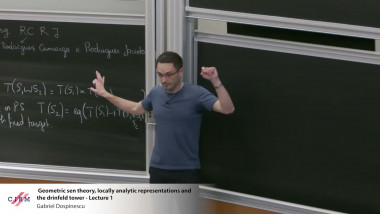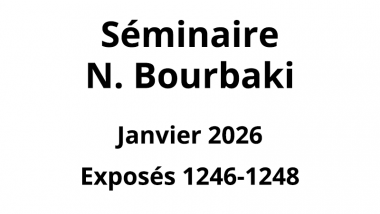Bogoliubov excitations driven by thermal lattice phonons in a quantum fluid of light
Appears in collection : 2024 - T1 - WS1 - Quantum simulators
The elementary excitations in weakly interacting quantum fluids have a non-trivial nature which is at the basis of defining quantum phenomena such as superfluidity. These excitations and the physics they lead to have been explored in closed quantum systems at thermal equilibrium both theoretically within the celebrated Bogoliubov framework, and experimentally in quantum fluids of ultracold atoms. Over the past decade, the relevance of Bogoliubov excitations has become essential to understand quantum fluids of interacting photons.
Their driven-dissipative character leads to distinct properties with respect to their equilibrium counterparts. For instance, the condensate coupling to the photonic vacuum environment leads to a non-zero generation rate of elementary excitations with many striking implications. In this work, considering that quantum fluids of light are often hosted in solid-state systems, we show within a joint theory-experiment analysis that the vibrations of the crystal constitute another environment that the condensate is fundamentally coupled to.
This coupling leads to a unique heat transfer mechanism, resulting in a large generation rate of elementary excitations in typical experimental conditions, and to a fundamental non-zero contribution at vanishing temperatures. Our theoretical framework also allows us to predict the presence of correlations in the photon field escaping the system.











![[1246] The model theory of perfectoid fields](/media/cache/video_light/uploads/video/SeminaireBourbaki.png)
